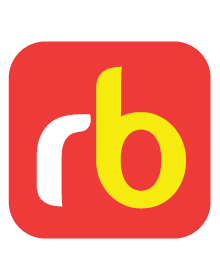
When preparing for an interview, especially in the tech domain, one question stands out as a crucial step in determining your future with the company: “Can you explain one of your projects?” This question is often the first technical query you will face after the typical “Tell me about yourself” introduction, and it plays a pivotal role in shaping the outcome of your interview. Whether you’re from the world of Generative AI, Machine Learning, or Data Analytics, how you answer this question can significantly influence your chances of advancing in the interview process.
Why “Explain One of Your Projects” is Crucial
The importance of this question cannot be overstated. Interviewers typically spend 5 to 7 seconds scanning your resume before deciding whether you should move forward in the interview process. Within the conversation’s first 15 to 20 minutes, they know whether you’re a good fit for the role. The “explain one of your projects” question holds immense weight out of this short window. This is where you can demonstrate your technical expertise, communication skills, and the relevance of your experience to the job you’re applying for.
The Art of Answering the “Explain One of Your Projects” Question
While it may seem simple, answering this question effectively requires a thoughtful approach. The ideal response should not be rushed into a brief 2-minute explanation, nor should it be so lengthy that it stretches to 30 minutes. A well-structured answer that lasts around 10 to 15 minutes is typically the sweet spot. Here’s how to approach this:
Start with Context and Relevance: Before diving into technical specifics, begin by providing context about the project. Acknowledge the industry or domain you were working in. Make it clear that you understand the company’s focus and, if possible, align your project with their objectives. If you know the company you’re interviewing with specializes in, say, Telecom or Generative AI, frame your explanation around a project you’ve done in that domain to demonstrate relevance.
Explain the Problem and Requirements: Explain the core challenge or problem the project aims to solve. For instance, if your project involved Generative AI, you might say, “One of my recent projects focused on building a chatbot for an e-commerce platform where customers could query product information using natural language.” Ensure your problem is straightforward and relatable to the job description.
Detail the Solution: Now, shift focus to the solution you implemented. This is the meat of your explanation, so go into detail about the methods, technologies, and processes you used. Explain how you approached the problem and the steps you took to develop the solution. For example, if you were working with Generative AI, describe how you used RAGs (Retrieval-Augmented Generation) or vector databases like Pinecone to enhance the chatbot’s ability to provide relevant answers based on real-time data.
For instance: “To address this, we implemented automated web scrapers that gathered product data from various sources, including PDFs and JSON formats. We then chunked this data into smaller segments, converted it into vector embeddings, and stored it in a vector database (Pinecone). The chatbot would then refer to this database when a user asked a question, such as ‘Can I have a laptop under 50,000?'”
Discuss the Technologies and Tools Used: This is where your technical expertise truly shines. If you’re familiar with specific tools, databases, or algorithms, highlight those and explain why they were the best choice for the project. For instance, if you used vector embeddings or discussed the intricacies of vector databases, this is the time to delve into it. If you’re confident in the process, share in-depth knowledge, such as different chunking techniques or how locality-sensitive hashing (LSH) works to speed up data retrieval in vector databases.
Highlight Your Role and Contributions: Don’t just talk about the project as a whole—highlight your specific role. Be clear about what tasks you were responsible for and how your contribution impacted the project’s success. Employers want to know what you brought to the table, so emphasize your direct contributions, whether in data preprocessing, model training, or deployment.
Emphasize Results and Impact: End your explanation by showcasing your work’s results and impact. Did the project lead to increased sales, better customer experience, or improved operational efficiency? Showing that your work had tangible results will leave a lasting impression on the interviewer. For example: “As a result, the chatbot increased customer engagement by 30% within the first month and reduced customer service load by 20%.”
Tips to Ace the Project Explanation
- Research the Company’s Needs: Tailor your project explanation to match the company’s focus. If the company specializes in Legal AI and you’ve worked on a Generative AI project for product search, connect the dots between your experience and their requirements.
- Be Confident But Honest: Focus on your strengths. If you’re confident in certain technical aspects, such as vector embeddings or cloud deployments, dive deeper into those topics. If you’re unfamiliar with other areas, avoid getting bogged down in them.
- Engage with the Interviewer: In face-to-face or online interviews, ask if you can share your screen or use a whiteboard to explain the project. Visuals can enhance understanding and demonstrate your ability to communicate complex ideas effectively.
- Prepare for Follow-up Questions: After presenting your project, the interviewer may have questions to dig deeper. Be prepared for questions like:
- “Why did you choose Pinecone over other vector databases?”
- “How did you optimize the performance of the chatbot?”
- “Can you explain how you handled data preprocessing for this project?”
- Keep the Focus on the Outcome: Interviewers are interested in how your work will contribute to their organization. Always explain how your project solved a problem or created value for the client or company.
Conclusion
Mastering the “Explain one of your projects” question is essential to acing your interview. By strategically framing your response, focusing on relevant experiences, and confidently explaining your role and the technologies used, you’ll increase your chances of standing out as a top candidate. Remember to tailor your examples to the company’s needs, focus on what you know best, and most importantly, showcase how your work can make an impact. With the proper preparation and mindset, you’ll be ready to confidently answer this key question and move forward in the interview process.



















